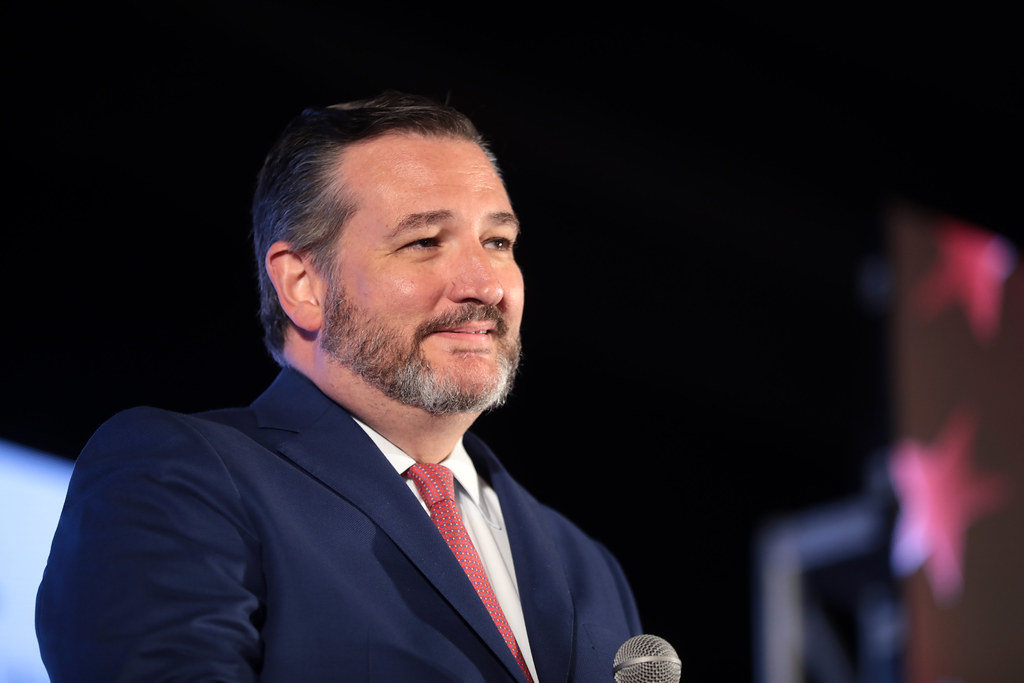How America Is Ignoring The Advice Of George Washington’s Farewell Address

President George Washington’s Farewell Address is one of the most important political speeches in American history.
Rather than seeking reelection, Washington chose to step down as Chief Executive after his second term — a move that set a powerful precedent for later Presidents and was eventually enshrined by the Twenty-Second Amendment.
On September 19, 1796, Washington exhorted the fledgling nation — which he had led in defeating the world’s most powerful empire — with several pieces of advice.
Roughly 225 years later, however, the United States is ignoring most of its first Commander-in-Chief’s counsel — which it would be wise to once again consider.
Individual Liberty
Throughout the speech, Washington affirmed the United States’ commitment to individual liberty — a reward that its citizens had earned with blood.
In particular, Washington told his countrymen to preserve the Constitution and hold it as a standard of republicanism to other nations across the globe:
I shall carry it with me to my grave, as a strong incitement to unceasing vows that heaven may continue to you the choicest tokens of its beneficence; that your union and brotherly affection may be perpetual; that the free Constitution, which is the work of your hands, may be sacredly maintained; that its administration in every department may be stamped with wisdom and virtue; that, in fine, the happiness of the people of these States, under the auspices of liberty, may be made complete by so careful a preservation and so prudent a use of this blessing as will acquire to them the glory of recommending it to the applause, the affection, and adoption of every nation which is yet a stranger to it.
Indeed, Washington expressed confidence that America hardly needed a reminder to preserve their own freedom:
Interwoven as is the love of liberty with every ligament of your hearts, no recommendation of mine is necessary to fortify or confirm the attachment.
Washington, however, was incorrect — at least with respect to modern-day America.
According to a disturbing poll from the Campaign for Free Speech, 51% of Americans believe that the First Amendment — which enumerates freedom of speech, freedom of the press, freedom of religion, and other inalienable, God-given rights — is outdated. 48% believe that “hate speech” ought to be illegal.
Largely due to the overwhelming influence of leftism in American education, young people in particular despise the nation’s founding documents. 57% of millennials say that the First Amendment should be written to “reflect the cultural norms of today.” Meanwhile, 54% say that an appropriate penalty for “hate speech” could be jail time.
Political Parties
Washington stressed the importance of avoiding factions, which he saw as deeply disruptive to national unity and the proper functioning of the federal government.
He also rightly predicted that political parties would divide the nation along geographical lines:
I have already intimated to you the danger of parties in the State, with particular reference to the founding of them on geographical discriminations. Let me now take a more comprehensive view, and warn you in the most solemn manner against the baneful effects of the spirit of party generally.
This spirit, unfortunately, is inseparable from our nature, having its root in the strongest passions of the human mind. It exists under different shapes in all governments, more or less stifled, controlled, or repressed; but, in those of the popular form, it is seen in its greatest rankness, and is truly their worst enemy.
Nevertheless, the United States almost immediately devolved into a two-party system. Today, most politically conscious Americans find themselves allied with either Democrats or Republicans.
A poll from Pew Research Center reveals public opinion is almost completely polarized along partisan lines. Before the 2020 election, 89% of Trump voters said that they would be “very concerned” about the country’s direction if Biden were to be elected; 90% of Biden voters said the same about Trump.
National Debt
Washington also pressed Americans to ensure that the government would not spend beyond its means. He saw the accumulation of national debt as a grave threat to independence:
As a very important source of strength and security, cherish public credit. One method of preserving it is to use it as sparingly as possible, avoiding occasions of expense by cultivating peace, but remembering also that timely disbursements to prepare for danger frequently prevent much greater disbursements to repel it, avoiding likewise the accumulation of debt, not only by shunning occasions of expense, but by vigorous exertion in time of peace to discharge the debts which unavoidable wars may have occasioned, not ungenerously throwing upon posterity the burden which we ourselves ought to bear.
Specifically, he told the citizens to hold their elected officials accountable in forwarding responsible budgeting:
The execution of these maxims belongs to your representatives, but it is necessary that public opinion should co-operate. To facilitate to them the performance of their duty, it is essential that you should practically bear in mind that towards the payment of debts there must be revenue; that to have revenue there must be taxes; that no taxes can be devised which are not more or less inconvenient and unpleasant; that the intrinsic embarrassment, inseparable from the selection of the proper objects (which is always a choice of difficulties), ought to be a decisive motive for a candid construction of the conduct of the government in making it, and for a spirit of acquiescence in the measures for obtaining revenue, which the public exigencies may at any time dictate.
Over the past two centuries, however, Americans have dramatically expanded the spending and taxation capacities of the federal government.
The national debt is now $28.7 trillion — the equivalent of $86,000 per citizen and $228,000 per taxpayer. For every $1 in new economic output, there exists $1.25 in federal obligations. Among the largest budget items for the federal government are Medicare and Medicaid, as well as Social Security — respectively accounting for $1.3 trillion and $1.1 trillion of spending.
Despite the high degree of expenditure — which accelerated rapidly during COVID-19 and the lockdown-induced recession — Americans have largely failed to express sufficient concern to their representatives. Another poll discovered that 78% of citizens — 90% of Democrats and 64% of Republicans — favored additional $1,400 stimulus checks at the beginning of 2021, even though the recession had largely concluded.
Foreign Entanglements
Washington also warned the United States about the dangers of involvement in foreign wars.
At the time of America’s birth as a nation, colonial European powers — such as Britain, France, and Spain — were spending blood and treasure on centuries-long skirmishes and battles across the globe. Though still surrounded by French and Spanish territories, the United States had the prospect of becoming isolated from European political alliances and conflicts.
Accordingly, Washington encouraged his countrymen to avoid foreign entanglements to the greatest possible extent:
Against the insidious wiles of foreign influence (I conjure you to believe me, fellow-citizens) the jealousy of a free people ought to be constantly awake, since history and experience prove that foreign influence is one of the most baneful foes of republican government. But that jealousy to be useful must be impartial; else it becomes the instrument of the very influence to be avoided, instead of a defense against it.
The great rule of conduct for us in regard to foreign nations is in extending our commercial relations, to have with them as little political connection as possible. So far as we have already formed engagements, let them be fulfilled with perfect good faith. Here let us stop. Europe has a set of primary interests which to us have none; or a very remote relation. Hence she must be engaged in frequent controversies, the causes of which are essentially foreign to our concerns. Hence, therefore, it must be unwise in us to implicate ourselves by artificial ties in the ordinary vicissitudes of her politics, or the ordinary combinations and collisions of her friendships or enmities.
Though the United States largely followed Washington’s advice for a century — especially through the Monroe Doctrine, which demanded that European powers cease further colonization of the Americas — it eventually found itself increasingly involved in conflicts around the globe.
Without a doubt, Washington is rolling over in his grave — especially following the Afghanistan conflict and its disastrous conclusion.
The views expressed in this opinion piece are the author’s own and do not necessarily represent those of The Daily Wire.
The Daily Wire is one of America’s fastest-growing conservative media companies and counter-cultural outlets for news, opinion, and entertainment. Get inside access to The Daily Wire by becoming a member
" Conservative News Daily does not always share or support the views and opinions expressed here; they are just those of the writer."





